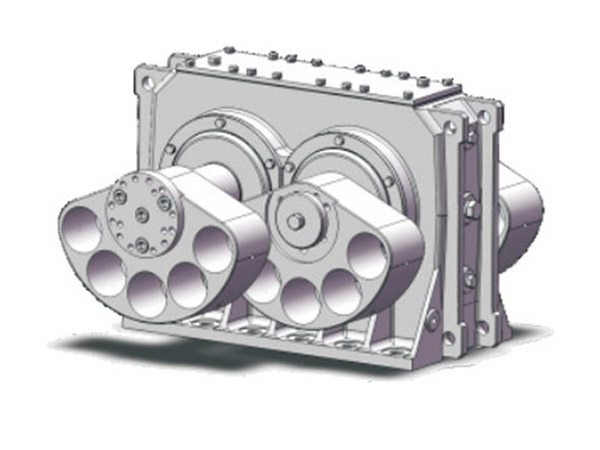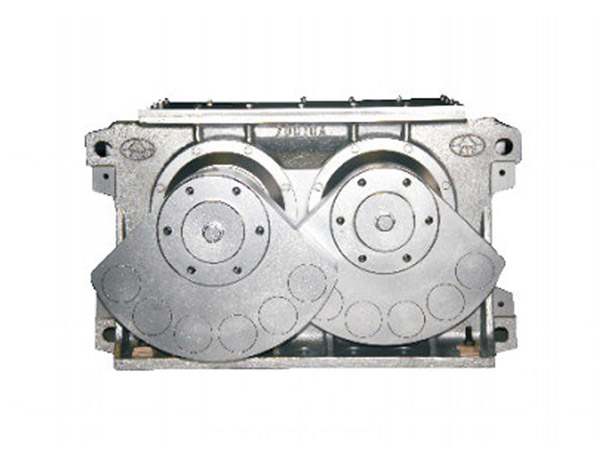Detailed explanation of vibrating screen exciter maintenance procedures and maintenance requirements
In the field of industrial equipment maintenance, as one of the key equipment, the vibrating screen exciter must follow a series of steps and standards during its maintenance process to ensure its reliability and durability. The maintenance process of the vibrating screen exciter includes a series of strict operations, from taking photos and archiving the original condition of the machine after entering the factory, to the comprehensive process of painting and shipping. Each step significantly affects the quality of the maintenance results. In order to ensure the quality of maintenance, various requirements in vibrating screen exciter maintenance are also particularly critical. From bearings to boxes, to gears and other parts, relevant standards and specifications need to be strictly adhered to to ensure that the vibrating screen exciter is maintained during maintenance. Finally, the expected working performance can be achieved.
Vibrating screen exciter maintenance

1. Vibrator maintenance process
Take photos and archive the original condition of the machine after entering the factory → Shot blasting → Spray primer → Disassemble the vibrator → Take photos and archive the parts → Clean the parts → Inspect, test and archive → Issue a test report → The salesperson will confirm the damage with the user Form a damage determination confirmation form → formulate a maintenance plan → receive parts → inspect, record and archive → ultrasonic cleaning → assembly → test and record and file → spray paint → ship
2. Vibrator maintenance requirements
- Bearings
It must be replaced during maintenance, and high-quality SKF special bearings for vibrating screens must be selected to ensure that they can withstand high-intensity vibration working environments and maintain long-term stable operation. Careful installation and adjustment work is also essential to ensure the correct installation position and normal working condition of the bearings.
- Sealing
The replacement of seals is an important guarantee for the normal operation of the exciter. When replacing, it is necessary to select high-quality seals that match the original parts to ensure that they can effectively prevent the leakage of lubricating oil or other substances, thereby protecting the internal parts of the exciter from damage.
- Box
Boxes that are cracked, deformed, thread damaged or worn must be replaced; when the box hole and the bearing outer ring installation position are worn and the bearing does not meet the assembly requirements, they must be replaced. The new box should be replaced with high-strength ductile iron QT400-12 material, which has no defects such as slag inclusions, pores, cracks, etc. and has been inspected by ultrasonic to ensure its durability and stability. During the processing of the cabinet, the precision machining process of the CNC machining center should be strictly implemented to ensure the accuracy and stability of the cabinet.

- Axis
During the maintenance process, shaft replacement is a key link to ensure the normal operation of the vibrator. If there are obvious concave and convex marks on the surface of the shaft, the ovality of the bearing position and gear position is ≥0.01mm, and the assembly dimensions of the shaft and the inner ring of the bearing do not meet the requirements, they must be replaced. The replacement shaft is made of alloy structural steel 42CrMo processed by CNC machine tools, which can ensure good strength and wear resistance. During the installation process, ensure that the assembly dimensions of the shaft and the inner ring of the bearing meet the requirements to ensure the operation of the vibrator.
- Gears
During maintenance, gear replacement is the key to ensuring the normal operation of the transmission system. Gears must be replaced when pitting and broken teeth, excessive surface wear, surface spots falling off, surface creeping deformation, etc., and the accuracy of the replacement gear should be level 5, and the gear meshing clearance should be ≤0.24mm. During the replacement process, the meshing clearance of the gears should be controlled within an appropriate range to ensure the normal operation and efficiency of the transmission system.
- Other parts
Check the parts according to the drawings, and those that are out of tolerance must be replaced. Replacement parts are homemade products to ensure stable operation and long-term reliability of the overall system.
- Standard parts
All standard parts must be replaced with grade 8.8 high-strength galvanized bolts to ensure a stable and reliable connection of various parts of the exciter and to avoid potential safety hazards and equipment failures caused by loosening or falling off.
- Test specifications
After the exciter is repaired, strict tests must be carried out. The test time is ≥36h, the operating temperature rise is ≤60℃, the noise is ≤85db (A), and there is no abnormal sound or oil leakage, it is deemed to be qualified.
- Spray painting specifications
During the painting process, the color code should be confirmed and painted based on the original machine color. The paint film thickness should be ≥0.3mm. Especially if the interior of the cabinet needs to be repaired due to damage to the paint-resistant film, the repair work must be carried out carefully to ensure its durability and cosmetic integrity.
3. Precautions for vibrator maintenance

1. Box
Observe the box for cracks, deformation, thread damage, wear and other defects. If the box has no obvious defects, special tools such as an inner diameter dial indicator and micrometer will be used to inspect the box’s various dimensions. The boxes that pass the inspection will be arranged for ultrasonic flaw detection. The box can be put into use only after passing the flaw detection. For boxes with doubts such as deformation that are difficult to confirm, use three-dimensional coordinates to check and determine the coaxiality of the box. Only qualified boxes can be used.
2. Gears
First observe whether there are pitted teeth and broken teeth, excessive surface wear, surface spots falling off, surface creep deformation, etc.; if there are no problems, use special tools such as inner diameter dial indicators and micrometers to check the dimensions of the gears; the gears that pass the dimensional inspection will undergo magnetic particle inspection. + Ultrasonic flaw detection; only gears that pass the flaw detection can be put into use. For gear arrangements with doubtful deformations that are difficult to confirm, use a gear detector to review and determine the tooth shape, and only qualified gears can be used.
3. Axis
First observe the obvious unevenness and wear marks on the surface of the shaft; if there are no problems, use special tools such as micrometers to check the dimensions of the shaft; after passing the inspection, conduct magnetic particle + ultrasonic flaw detection on the shaft; it can only be used after passing the flaw detection. For shaft parts whose deformation and coaxiality changes are difficult to determine, arrange a three-dimensional coordinate check to check the shaft coaxiality, and only those parts that pass the standard can be used.
4. Assembly
Ensure that the assembly area is clean, and ultrasonic cleaning is required before assembly to ensure that all parts are clean and free of stains; inspect the assembly and press-fitting tools specified and repair them if necessary; assemble and inspect according to process specifications; arrange for qualified vibrators Carry out tests to ensure compliance with the “Hiside Vibrator Test Specifications”.
During the maintenance of the vibrator, in addition to strictly following the maintenance procedures of the vibrator, it is also crucial to observe the precautions. Especially in the monitoring and inspection of boxes, gears, shafts and assembly processes, more accurate and detailed measures need to be taken. This not only includes the verification of various dimensions, but also requires the use of testing tools and technologies, such as magnetic particle + ultrasonic flaw detection and three-dimensional coordinates, to ensure that the repaired exciter can comply with relevant test specifications and standards. Only by strictly following these rigorous maintenance precautions can the reliability and stability of the maintenance quality of the vibrator be ensured, thereby ensuring its efficient and stable operation in industrial production.



